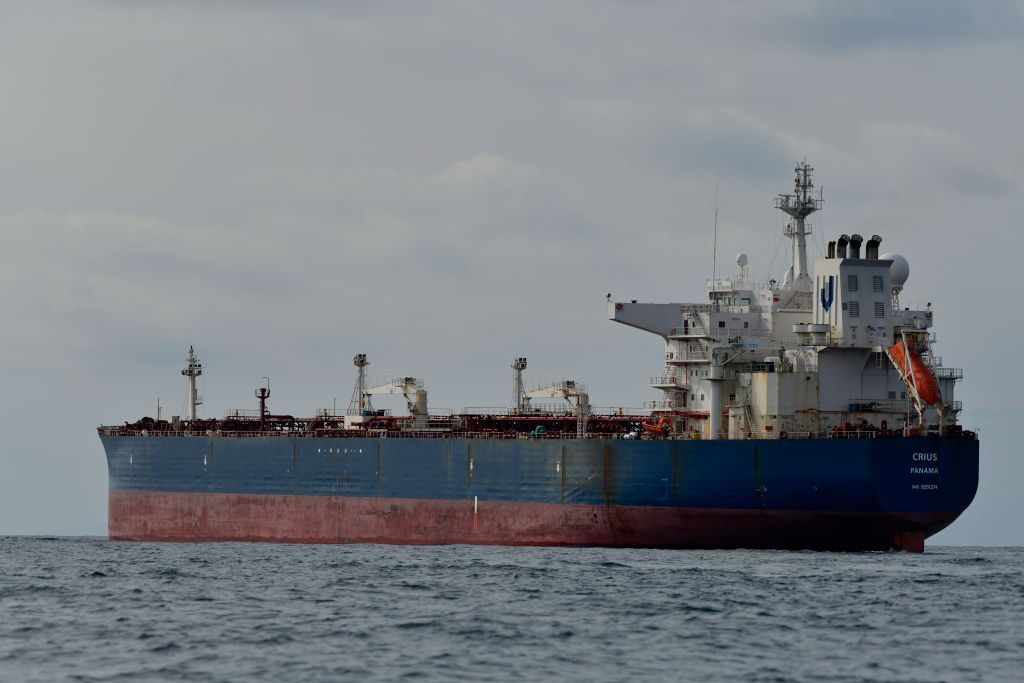The outgoing U.S. President Joe Biden’s administration is planning to introduce a significant package of sanctions on Russia’s shadow fleet and individuals to reduce Russia’s income from oil funding its war against Ukraine. Despite Western efforts to impose a price cap of $60 per barrel on Russian oil, Moscow has been able to bypass sanctions by selling oil above the established threshold with the help of aging vessels of dubious ownership. The planned sanctions would target tankers carrying Russian oil above the price cap and individuals involved in schemes to sell crude above the cap. G7 countries, along with the EU and Australia, recently imposed rules on Western operators, permitting them to insure and transport Russian oil only if it is sold below $60 per barrel. However, Russia has redirected its flows to China and India, countries willing to purchase the oil above the cap, using old tankers that also pose environmental risks. The U.S. has only sanctioned a few of these vessels, according to Reuters.
In a separate initiative, G7 countries discussed the possibility of lowering the price cap to $40 per barrel, but no consensus has been reached due to projections showing softening oil prices for 2025. Ukraine has also targeted Russia’s oil infrastructure through drone strikes, further disrupting production. Several Russian refineries have reduced or suspended operations due to the combined impact of sanctions and Ukrainian attacks. The sector has been forced to sell fuel at a discount and operate under high interest rates, putting strain on its operations. The situation reflects ongoing efforts to curtail Russia’s ability to fund its activities in Ukraine through oil revenues.
President Volodymyr Zelensky of Ukraine revealed in an interview that he had offered U.S. President-elect Donald Trump for Ukraine to buy American weapons using $300 billion in frozen Russian assets. This offer was made in an effort to strengthen Ukraine’s defense capabilities against Russian aggression. The revelation sheds light on the diplomatic negotiations and strategies employed by Ukraine to secure military support from the United States. Zelensky’s willingness to use frozen Russian assets to purchase weapons highlights the urgency of the situation in Ukraine and the country’s determination to defend itself against external threats.
The geopolitical tensions between Russia, Ukraine, and Western countries have led to a complex web of sanctions, military strategies, and diplomatic maneuvers. The imposition of sanctions on Russia’s shadow fleet and individuals involved in selling oil above the price cap reflects a broader effort to limit Russia’s ability to finance its actions in Ukraine. By targeting key aspects of Russia’s oil industry, Western countries seek to weaken Moscow’s position and put pressure on the Russian government to de-escalate the conflict. These measures represent a continuation of ongoing efforts to hold Russia accountable for its actions and support Ukraine in its struggle for sovereignty and security.
The use of economic sanctions, military interventions, and diplomatic negotiations underscores the multifaceted nature of the conflict in Ukraine and the broader geopolitical dynamics at play. The involvement of G7 countries, the EU, and Australia in imposing rules on Western operators regarding the transportation and sale of Russian oil demonstrates a coordinated approach to addressing Russia’s actions. The complexities of the situation, including the redirection of Russian oil flows to other countries and the environmental risks posed by aging vessels, highlight the challenges faced in enforcing sanctions and curbing Russian aggression. The evolving strategies and responses from all parties involved indicate the fluidity and complexity of the situation and the ongoing efforts to address the crisis in Ukraine.
Overall, the proposed sanctions on Russia’s shadow fleet and individuals involved in bypassing the price cap on oil sales represent a significant development in the efforts to address the conflict in Ukraine. The willingness of Western countries to take action against key aspects of Russia’s oil industry reflects a determination to hold Moscow accountable for its actions and support Ukraine in its struggle for sovereignty. The complexities of the situation, including the impact of sanctions on Russian refineries and the challenges of enforcing measures against aging vessels, underscore the ongoing challenges in addressing the conflict and achieving a resolution. The diplomatic negotiations, military strategies, and economic sanctions employed in response to the crisis highlight the multifaceted nature of the conflict and the complex dynamics at play in the region.















